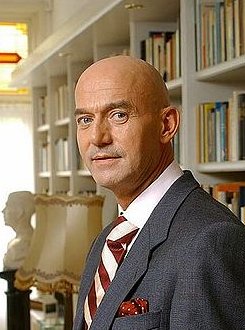
Wilhelmus Simon Petrus Fortuijn, known as Pim Fortuyn, was a Dutch politician, author, civil servant, businessman, sociologist and academic who founded the party Pim Fortuyn List in 2002.
The Pim Fortuyn List was a right-wing populist political party in the Netherlands named after its eponymous founder Pim Fortuyn, a former university professor and political columnist. The party was considered nationalist as well as adhering to its own distinct ideology of Fortuynism according to some commentators.

The culture of the Netherlands is diverse, reflecting regional differences as well as the foreign influences built up by centuries of the Dutch people's mercantile and explorative spirit. The Netherlands and its people have long played an important role as centre of cultural liberalism and tolerance. The Dutch Golden Age is popularly regarded as its zenith.
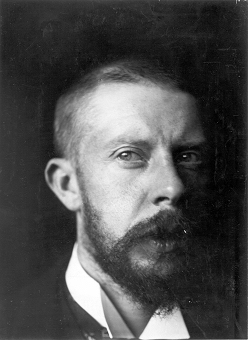
George Hendrik Breitner was a Dutch painter and photographer. An important figure in Amsterdam Impressionism, he is noted especially for his paintings of street scenes and harbours in a realistic style. He painted en plein air, and became interested in photography as a means of documenting street life and atmospheric effects – rainy weather in particular – as reference materials for his paintings.

Islam is the second largest religion in the Netherlands, after Christianity, and is practised by 5% of the population according to 2018 estimates. The majority of Muslims in the Netherlands belong to the Sunni denomination. Many reside in the country's four major cities: Amsterdam, Rotterdam, The Hague and Utrecht.
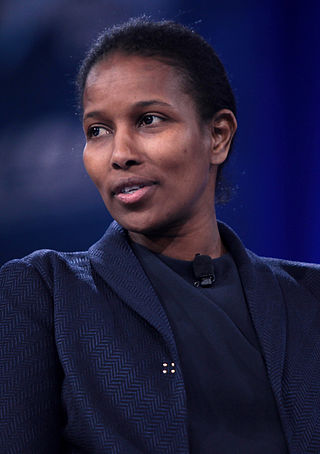
Ayaan Hirsi Ali is a Somalian-born Dutch-American writer, activist, conservative thinker and former politician. She is a critic of Islam and advocate for the rights and self-determination of Muslim women, opposing forced marriage, honour killing, child marriage, and female genital mutilation. At the age of five, following local traditions in Somalia, Ali underwent female genital mutilation organized by her grandmother. Her father Hirsi Ali Magan—a scholar, intellectual, and a devout Muslim—was against the procedure but could not stop it from happening because he was imprisoned by the Communist government of Somalia at the time. Her family moved across various countries in Africa and the Middle East, and at 23, she received political asylum in the Netherlands, gaining Dutch citizenship five years later. In her early 30s, Hirsi Ali renounced the Islamic faith of her childhood, began identifying as an atheist, and became involved in Dutch centre-right politics, joining the People's Party for Freedom and Democracy (VVD). In 2022 she announced that she had become a Christian.

Theodoor "Theo" van Gogh was a Dutch film director. He directed Submission: Part 1, a short film written by Somali writer and politician Ayaan Hirsi Ali, which criticised the treatment of women in Islam in strong terms. On 2 November 2004, he was murdered by Mohammed Bouyeri, a Dutch-Moroccan Radical who objected to the film's message. The last film Van Gogh had completed before his murder, 06/05, was a fictional exploration of the assassination of Dutch politician Pim Fortuyn. It was released posthumously in December 2004, a month after Van Gogh's death, and two years after Fortuyn's death.

Mohammed Bouyeri is a Moroccan-Dutch terrorist serving a life sentence without parole at the Nieuw Vosseveld prison for the 2004 murder of Dutch film director Theo van Gogh. A member of the Hofstad Network, he was incarcerated in 2004 and sentenced in 2005.
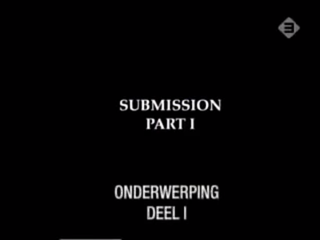
Submission is a 2004 English-language Dutch short drama film produced and directed by Theo van Gogh, and written by Ayaan Hirsi Ali ; it was shown on NPO 3, a Dutch public broadcasting network, on 29 August 2004. The film's title is one of the possible translations of the Arabic word "Islam". An Islamist reacted to the film by assassinating Van Gogh.
The Hofstad Network was an Islamic terror group composed mostly of Dutch citizens, and mainly young men between the ages of 18 and 32. The name "Hofstad" was originally the codename the Dutch secret service AIVD used for the network and leaked to the media. The name likely refers to the nickname of the city of The Hague, where some of the suspected terrorists lived. The network was active throughout the 2000s.

Ian Buruma is a Dutch writer and editor who lives and works in the United States. In 2017, he became editor of The New York Review of Books, but left the position in September 2018.

Marius Job Cohen is a retired Dutch politician and jurist who served as Mayor of Amsterdam from 2001 to 2010 and Leader of the Labour Party (PvdA) from 2010 to 2012.
Gregorius Nekschot is the pseudonym of a controversial Dutch cartoonist who mocks political ideas about Dutch multicultural society and the behaviour of people with rigid religious or ideological views. Islam is frequently subject of his cartoons. Gregorius Nekschot publishes his cartoons and satire mostly on his own website. His cartoons are also available in print from one publisher. On May 13, 2008, the cartoonist was arrested and taken into custody for interrogation. He was released after 30 hours, but it was expected that he would be prosecuted for discriminatory speech, insulting certain groups in society on the basis of their race or beliefs and possibly also for the crime of inciting hatred. His arrest has caused much debate in the press and parliament in what has been coined The Affair by Trouw newspaper on May 24, 2008. Charges against him were eventually dropped in September 2010. In December 2011 he announced he would no longer publish cartoons.
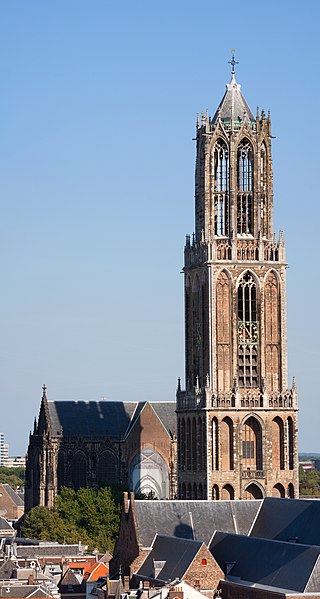
Religion in the Netherlands was dominated by Christianity between the 10th and 20th centuries. In the late 19th century, roughly 60% of the population was Calvinist and 35% was Catholic. Also, until the Holocaust, there was a noticeable Jewish minority. Since World War II, there has been a significant decline in Catholic and especially Protestant Christianity, with Protestantism declining to such a degree that Catholicism became the foremost form of the Christian religion. The majority of the Dutch population is secular. Relatively sizable Muslim and Hindu minorities also exist.

Eén NL is a Dutch political party founded in September 2006. It took part in the 2006 Dutch election under the leadership of Marco Pastors and Joost Eerdmans, but a dismal election result leaves the political future of the party quite uncertain. The party is seen as one of the political heirs of the late Pim Fortuyn.
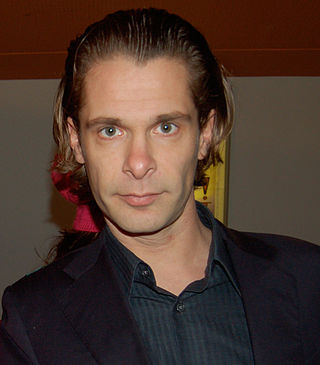
Hans Eduard Marie Teeuwen is a Dutch comedian, musician, actor and occasional filmmaker. His work has been described as absurdist, apolitical and confrontational.
Multiculturalism in the Netherlands began with major increases in immigration during the 1950s and 1960s. As a consequence, an official national policy of multiculturalism was adopted in the early 1980s. This policy subsequently gave way to more assimilationist policies in the 1990s and post-electoral surveys uniformly showed from 1994 onwards that a majority preferred that immigrants assimilated rather than retained the culture of their country of origin. Even though the general acceptance of immigrants increased, opinion polls from the early 1980s and after showed that many were critical of immigration. Following the murders of Pim Fortuyn and Theo van Gogh the political debate on the role of multiculturalism in the Netherlands reached new heights.
The trial of Geert Wilders, a member of the House of Representatives of the Netherlands, took place in the Netherlands in 2010 and 2011. Wilders was accused of criminally insulting religious and ethnic groups and inciting hatred and discrimination. He was found not guilty in June 2011.
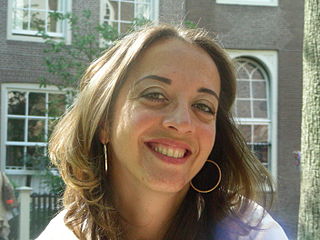
Ebru Umar is a Dutch columnist of Turkish descent. Under the influence of Theo van Gogh, she gave up a career in management and became a columnist, first for van Gogh's website and, after he was assassinated, as his successor as a regular columnist of Metro. She writes for a number of Dutch magazines and has published four books, often on the topics of feminism and criticism of Islam.
Simon Cottee is an academic who works as a senior lecturer in criminology at the University of Kent, and is a regular contributor to The Atlantic. He previously worked at Bangor University and the University of the West Indies' Trinidad campus. He is the author of The Apostates: When Muslims Leave Islam, which the publishers claim is "the first major study of apostasy from Islam in the Western secular context". In a review published in New Humanist, Alom Shaha wrote that the book "brings sensitivity and empathy to an intensely polarised debate". Nick Cohen, writing in The Spectator, argues that Cottee "shows how elements in the left and academia are happy to denounce Muslims who exercise their freedom to abandon their religion as 'native informers' who have gone over to the side of western imperialism". Cottee is also editor, with Thomas Cushman, of Christopher Hitchens and His Critics: Terror, Iraq, and the Left. Cottee's published research also includes journal articles on topics including the murder of Theo van Gogh and the motivations of terrorists. He has argued that gang culture offers a way of understanding the appeal of ISIS . Cottee also argues that the group's propaganda videos have a "pornographic quality".














